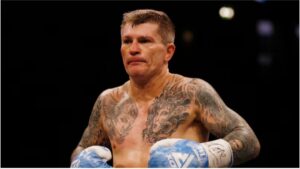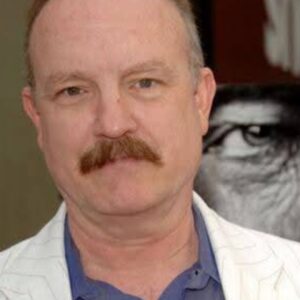British Boxing Champion Ricky Hatton Dies at 46
Photo of Curious World Staff Curious World StaffSeptember 14, 20250 22

Ricky Hatton, the beloved British fighter who rose to stardom as a two-division world champion, has died at the age of 46.
Police in Greater Manchester confirmed on Sunday that a body was discovered at a residence in Hyde following a call from a neighbor. Authorities stated that the death is not being treated as suspicious.
Known to fans as “The Hitman,” Hatton turned professional in 1997 and built a remarkable record of 45 wins and 3 losses. He captured world titles at both light-welterweight and welterweight, and opened his career with an incredible 43 consecutive victories. His only defeats came late in his career against Floyd Mayweather Jr. in 2007, followed by Manny Pacquiao and Vyacheslav Senchenko.
Although he officially retired in 2012, Hatton recently began training for a planned comeback. He was preparing to face Eisa Al Dah in Dubai this December in a middleweight bout.
Outside the ring, Hatton was candid about his personal struggles, speaking openly about battles with depression, alcohol, and drug use. “I was coming off the rails with my drinking and that led to drugs. It was like a runaway train,” he said in a 2016 interview with BBC radio.
A lifelong Manchester City supporter, Hatton was also known for his close friendship with Oasis band members Noel and Liam Gallagher. Manchester City announced it would pay tribute to the boxer ahead of Sunday’s derby against Manchester United.
Tributes quickly poured in from across the boxing world. Heavyweight champion Tyson Fury posted: “RIP to the legend Ricky Hatton, may he rest in peace. There will only ever be one Ricky Hatton. Can’t believe this, so young.”
Former champion Amir Khan shared on social media: “Today we lost not only one of Britain’s greatest boxers, but a friend, a mentor, a warrior. As fighters, we tell ourselves we’re strong – we train, we sweat, we take hits, we get up. But sometimes the hardest fight happens in silence, in the mind. Mental health isn’t weakness. It’s part of being human. And we must talk about it. We must reach out. We must lean on each other.”
Hatton leaves behind a legacy as one of Britain’s most popular and inspiring fighters – both for his achievements in the ring and for his honesty about struggles outside of it.





